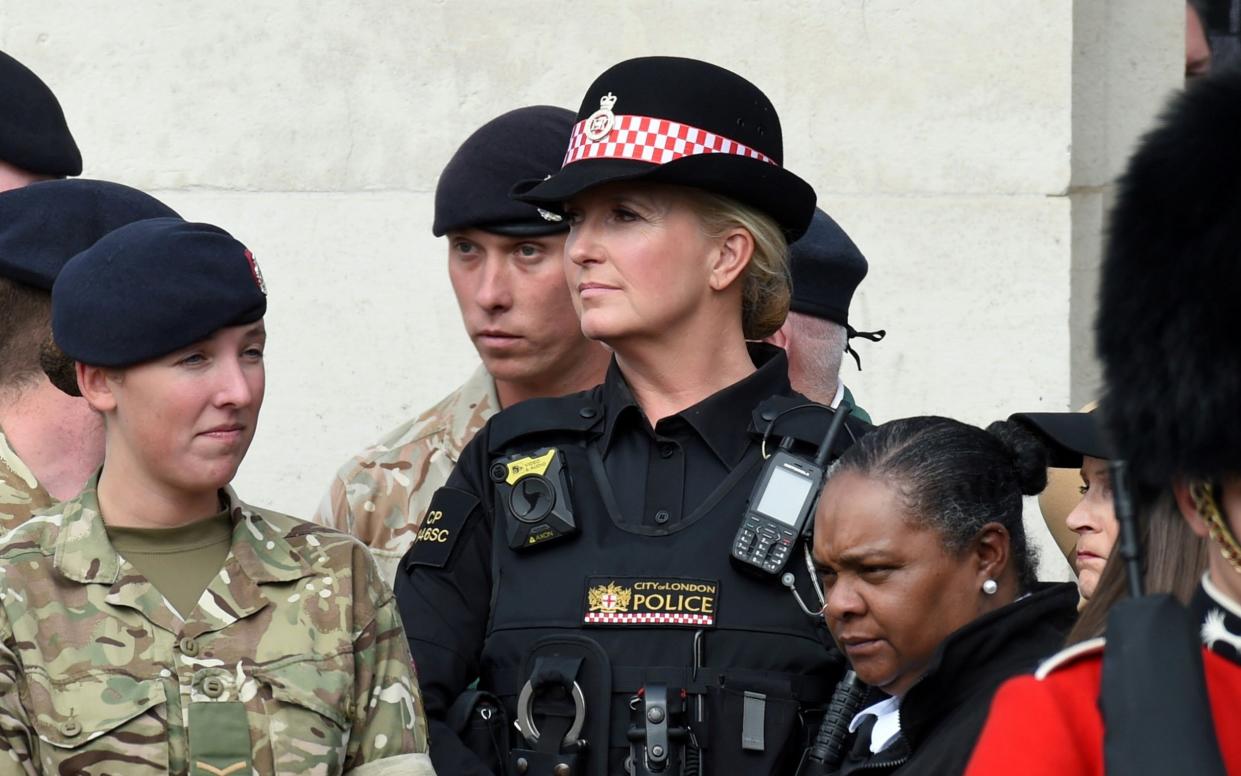Older people sought to pound the beat as special constables

Middle-aged people have been urged to sign up to the Special Constabulary amid warnings the system of police volunteering is in crisis.
Special constables have been an integral part of British policing for more than 200 years, helping to support their full-time warranted colleagues on the front line.
In recent years, the number of volunteers has plummeted, especially among the young, leading to fears some forces might scrap the role altogether.
Now there are growing calls for older people, with a broader range of skills and experience, to step in and fill the gaps.
Volunteering as a special was traditionally regarded as a pathway for those who wanted to pursue a career in the regular force and was mainly made up of men and women in their early and mid-20s.
But the success of the police uplift programme - which led to 20,000 new officers being recruited - meant most candidates were accepted into the regular service without the need to earn their spurs as a special.
There are now fewer than 7,000 special constables spread across the 43 forces in England and Wales, the lowest in 50 years.
Specials are required to complete 16 hours of service a month and have the same powers as a regular officer.
While the role is unpaid, specials get extensive training and are entitled to other benefits.
There is no upper age limit. Penny Lancaster, 51, the wife of Sir Rod Stewart, joined the Special Constabulary in 2021 and was on duty during the King’s Coronation last year.
CJ Marshall, Special Assistant Chief Officer with the Metropolitan Special Constabulary, said given the recruitment crisis, policing must stop viewing specials as “overtime stealers” and “hobby bobbies” and embrace the value older volunteers can offer.
In a paper for the Police Foundation think tank, he said more mature specials brought different motivations and experiences to the role and were not just looking for a “stepping stone” into the regular service.
‘Huge value to service’
His co-author, Dr Iain Britton, told The Telegraph: “If you recruit older professionally established people, obviously one of the advantages is that they stick around and the programme builds and sustains, that is important because churn is expensive.”
He said older people could also bring huge value to the service, through their professional skill sets and experiences.
He said: “Policing is changing rapidly and there is increasingly a need for specialists in fields such as cyber, digital, fraud, combating violence against women and girls.
“These experiences and skill sets can be very hard to recruit and retain, which is where the more flexible part-time or volunteer route may be an option.”
But as well as bringing value to policing, Dr Britton said being a special constable could also be hugely rewarding for people looking to do something exciting in their middle age.
‘Totally different and challenging’
He said: “Some of the specials I have talked to describe it as being like having a ‘front row seat to the greatest show on earth’.
“You may have reached a point in your life when you are managing a desk at work and this offers the opportunity to come out and do something that is totally different and challenging.
“You can make a huge amount of difference. Most of the volunteer officers I have talked to have been involved in preventing something terrible happening. Or have perhaps even saved someone’s life.
“You might get to the stage in life in your 40s and 50s and you are asking yourself, ‘What did you do at the weekend?’
“Did you just sit around and watch the telly, or were you out talking a young person down from a bridge?”
He went on: “By doing these things, you are not just doing something challenging or worthwhile, you are also perhaps doing stuff that then feeds back into your life.
“People talk about how in their personal lives they become better at negotiating or dealing with personal conflicts because if you have done some of that in the front-line policing context then you can apply the same skill sets in other ways.
“It keeps people active. It gets you dealing with people and it is a bit of real life which can be a very refreshing difference.”

 Yahoo News
Yahoo News 
